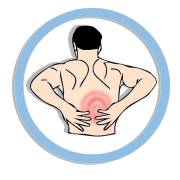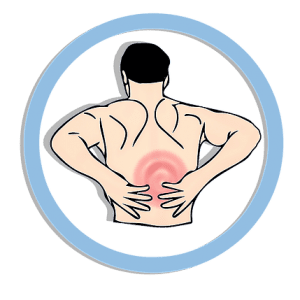3 Tips to Manage Holiday Stress and Unwanted Aches and Pain
The holiday season should be a time of celebration, joy, and cherished moments with loved ones. But it tends to bring with it a flurry of activities and responsibilities – and for many of us – that equals stress. The pressure to create the perfect holiday experience – coupled with the hustle and bustle of shopping, cooking, and entertaining – can lead to elevated and unwanted stress levels. And uncontrolled, heightened stress can start to manifest itself physically in the form of aches and pains in our body.
The good news is there are things you can do to avoid this – or at the very least – significantly minimize aches and pains caused by stress.
Here are three of my top tips for reducing Holiday Stress to help you avoid unwanted physical aches and pain.
-
Prioritize Intentional Breathing
Breathing is one of the most powerful tools at your disposal for rapidly reducing and interrupting stress. The act of taking a deep breath sends a signal to your brain to calm down and relax. This simple yet effective technique can have a dramatic impact on your stress levels in as little as 30 seconds. The beauty of intentional breathing is that you can do it anywhere and at any time – whether you’re stuck in traffic, at your desk, in a crowded store, or in the privacy of your own home.
The premise behind intentional breathing is to interrupt the accumulation of stress. By doing so, you decrease the overall toll it takes on both your body and mind. When stress is allowed to build up past a certain threshold – it can take the form of muscle tension, headaches, and even neck and back pain. Therefore, taking a moment to practice intentional deep breathing can help to break up that stress cycle, and make a significant difference in how you feel during the holiday season.
-
Practice Gratitude
Gratitude is a powerful antidote to stress. Studies have shown that practicing gratitude can lower cortisol levels in the body by approximately 23 percent. Cortisol, often referred to as the “stress hormone”, is responsible for many of the negative effects of chronic stress, including high blood pressure and an increased risk of heart disease. Chronic stress can also be responsible for unwanted muscle tension – especially in areas like your neck, back, and hips.
When we focus on things we appreciate (aka: practice gratitude) – we activate the parasympathetic nervous system – which is responsible for calming the body and returning it to its natural rhythm. When your parasympathetic nervous system is activated – stress dissipates. So by consciously practicing gratitude, you actively lower your stress levels. This not only benefits your mental well-being – but also has a positive impact on your physical health. When your stress is reduced – it leads to lower blood pressure, improved sleep quality, and you’ll notice decreased muscle tension throughout your body.
-
Get Physical
Physical activity is a powerful stress-reduction tool with numerous benefits for both body and mind. Engaging in regular exercise helps boost your mood and decrease muscle aches by releasing endorphins – your body’s natural stress and pain relievers.
Another benefit of physical activity is that it helps put an end to the “fight or flight” response triggered by stress. In ancient times, our fight or flight response served to protect us from immediate danger – such as being chased by a predator (aka Lion). The physical activity of running away signaled to your brain that the fight or flight response could end – because you were out of danger. But in our modern world, the fight or flight response hasn’t fully adapted yet, and chronic everyday stress can simulate it.
The problem now is we don’t “run away” from our stress anymore (although many of us wish we could). So we need to make a conscious effort during the day to do physical movement to help break up our stress – and effectively disrupt this flight or flight response that’s occurring. So when you feel that stress heightening – get moving – it will help your body and your nervous system to feel better.
I hope these simple and practical tips help you to get a bit more control over your Holiday Stress this Season – and by consequence – less aches and pains.
The key is not necessarily to prevent stress altogether – but to instead – learn to break up the cycle and manage it better – so it doesn’t consume your body. And if you’re thinking to yourself – “I wish I read this article weeks ago” – because perhaps your aches and pains are already out of control – you might need some expert help. I suggest speaking with a mechanical pain expert who can help you figure out where your pain is coming from, help you get rid of it, and get you on a physical regimen that is designed to keep your pain gone – and give you better control over your stress as an added benefit.
Are you local to Portsmouth, NH?
Consider speaking to one of my mechanical pain specialists by clicking here. They will ask you all about what’s been going on and see if we would be a good fit to work together 🙂
Dr. Carrie Jose, Physical Therapist and Mechanical Pain Expert, owns CJ Physical Therapy & Pilates in Portsmouth and writes for Seacoast Media Group. To get in touch, or request a free discovery visit with one of her mechanical pain specialists, CLICK HERE or call 603-380-7902





